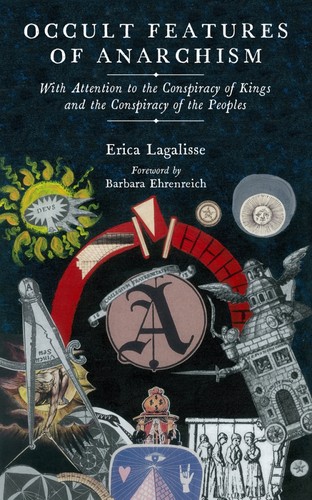Short Reflection on Occult Features of Anarchism
4 stars
This was a rather short read. Feels incomplete and pointed instead of neatly woven. It has its points in the right analysis of neglect of idea history parts that do not favor the current perception of what is needed in anarchist practices (or to draw wrong traditions). A bit too much focussed around Freemasons, could have written more about (or at all) heretic Christian anarchists (I.e. the Dutch or Belgian, the American settler communes (Owenites are mentioned in two paragraphs)).
The book should be longer.
- Good for name dropping and connections,
- bad on what actually connects them (beyond a few points and adjectives, I was a bit sad about that).
- Theosophy is named a few times, but no compelling story is told, just hinted. Goldman vs. Krishnamurti was fun to discover.
- Good for sources and references.
- Mysticism (meister ekkehard) is not mentioned enough, as well as Spinozist traditions (Landauer, Rocker, …
This was a rather short read. Feels incomplete and pointed instead of neatly woven. It has its points in the right analysis of neglect of idea history parts that do not favor the current perception of what is needed in anarchist practices (or to draw wrong traditions). A bit too much focussed around Freemasons, could have written more about (or at all) heretic Christian anarchists (I.e. the Dutch or Belgian, the American settler communes (Owenites are mentioned in two paragraphs)).
The book should be longer.
- Good for name dropping and connections,
- bad on what actually connects them (beyond a few points and adjectives, I was a bit sad about that).
- Theosophy is named a few times, but no compelling story is told, just hinted. Goldman vs. Krishnamurti was fun to discover.
- Good for sources and references.
- Mysticism (meister ekkehard) is not mentioned enough, as well as Spinozist traditions (Landauer, Rocker, Buber!)
- Short discussion of the usefulness of applying cultural appropriation to the past vs. Using it in the present.
The last chapter is about modern-day dealing with conspiracy theories (I skipped that for now)

